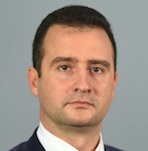
The Energy Efficiency Directive and the goal for the EU to reach its 2020 energy efficiency target
Member States are on track in collectively reaching the EU goal to increase their energy efficiency by 20 % by 2020. This statement is the outcome of the official Commission assessment of the progress made in Europe towards the target set by the current Energy Efficiency Directive.
Without a doubt, the fact that Member States will fulfill their commitment to lower their energy consumption both in terms of primary and final energy consumption is a very positive message in the context of the clean energy transition a multi-layer and para European project for which there is a common understanding and consensus on EU level.
The question which now remains for the national governments is to assess the consequences and the impact of the improved energy efficiency and to provide for a consistent energy efficiency perspective for 2030.
The numbers reported by the Commission indicate the clear benefits of the energy efficiency savings for households and industry, competitiveness, sustainability, security of supply, reduction of greenhouse gas emissions, improved air quality.
As a Deputy Minister for Energy in Bulgaria I can only confirm the priority and the positive impact of the energy efficiency policy in my country.
This political statement is supported by the national reporting data which show that Bulgaria has already achieved energy savings of 5,056 GWh for the period 2014-2020 and it is realistic to expect that the final energy savings target of 8,325 GWh by 2020 will be met.
These savings directly contribute to boosting the competitiveness of the economy and are a way of stimulating economic growth and creating new jobs in a situation of rising fuel and energy prices.
Furthermore, according to Eurostat data the energy intensity of the national GDP shows a steady downward trend and has decreased with 10.6 % since 2012, giving Bulgaria the opportunity to reach the EU average levels in the near future.
Another sign of the ambition of the government to deliver further on the energy efficiency goals is the approval of additional 1 billion leva (around 500 million euros) from the state budged for the implementation of the National Energy Efficiency Program for Multifamily Residential Buildings.
The Program is expected to achieve significant improvements in one of the areas with greatest potential for energy savings the building stock, and to accelerate the renovation rate.
As a politician I appreciate highly one particular aspect of the energy efficiency policy its role as a long-term measure to tackle energy poverty.
I fully share the opinion that energy poverty is incompatible with the European social model and that it has to be eradicated with complex and comprehensive instruments.
One of these measures with long-lasting effect can indeed be the energy efficiency improvements in the households affected by energy poverty which have the potential to reduce the bills of the consumers, increase their living standard and provide comfort and security in their everyday live.
Once we have recognized the potential of energy efficiency for the EU energy policy, we have to take a look in the future and the 2030 targets which are negotiated currently under the framework of the Clean Energy for all Europeans legislative package between the European Parliament and the Council, represented by the Bulgarian Presidency.
As a participant in the negotiation rounds with the Parliament and on behalf of the Bulgarian Presidency and can confirm that our goal is to strike an ambitious, balanced and sustainable compromise which will reflect the positions of the Member States and will adequately contribute to the overall goals of the Energy Union and the international climate commitments of the EU.
What is important for me is not only the overall EU target for energy efficiency, but also the instruments which will be put in place in order to achieve progress in cost-efficient, sustainable and coherent manner.
In that regard the energy efficiency policy should not be seen as a separate policy consideration but should be developed hand in hand with the other dimensions of the Energy Union and should complement the existing EU mechanisms which also deliver on the goal for zero-carbon economy such as the ETS system.
Finding such a balance is a complicated political task but I am convinced that in the end the Council and the Parliament will agree on a robust, flexible and ambitious framework for the energy efficiency policy for 2030.
In conclusion, in my capacity as a deputy minister and negotiator of EU legislation I aim to deliver the following political message improving the energy efficiency improves also the lives of our citizens, enhances the competitiveness of our economy and contributes to a brighter and cleaner EU future.
Having seen the national impact of the energy efficiency policy, I am looking forward to build up on what’s already achieved in the EU context.




